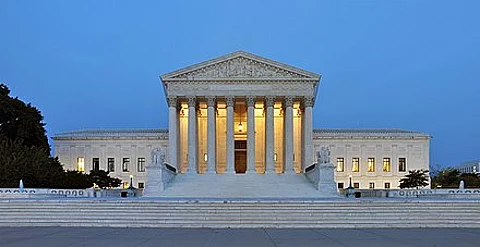

If at first you don’t succeed, sue the bastards in court.
Now the word’s biggest oil companies are predicting climate change “chaos” after the US Supreme Court refused to block a lawsuit from the city of Honolulu seeking billions in damages stemming from unspecified impacts of climate change.
Instead, the city’s water board is accusing a slate of major oil producers, including ExxonMobil, BP plc, Chevron and Shell of deceiving customers about the risks of fossil fuel consumption to the environment.
The American high court, without comment, refused to hear an appeal from the oil companies to block the suit on the grounds that regulating climate policy is a federal — not state — responsibility. Honolulu, however, argued that “deceptive commercial practices fall squarely within the core interests and historic powers of the states.”
By refusing to take up the matter, the decision effectively allows nearly two dozen similar cases in California, Colorado and New Jersey to seek redress for wild fires, rising sea levels and severe storms attributed to climate change.
If successful, lawyers for the oil companies complained it would “present a serious threat to one of the nation’s most vital industries.”
“The stakes in this case could not be higher," attorneys wrote in court documents.
The Biden administration reportedly made a direct appeal to urge the court to reject the Bid although observers expect the incoming Trump administration to take a markedly different view.
For its part, Honolulu argued that “deceptive commercial practices fall squarely within the core interests and historic powers of the states.”
Justice Samuel Alito, who owns shares in ConocoPhillips and Phillips 66 — two of the companies pressing the appeal — recused himself from the deliberations without explanation.
In June, Calgary-based Suncor Energy lost a bid to have a suit brought against it by the city of Boulder, CO, moved to federal court. Like Hawaii’s, it accuses Suncor along with ExxonMobil of violating Colorado’s consumer protection law and creating a public nuisance that they ought to be held responsible for helping to mitigate.
But Colorado argues the local governments are not attempting to “litigate a policy solution to global climate change, limit fossil fuel use or production, or control greenhouse gas emissions.”
